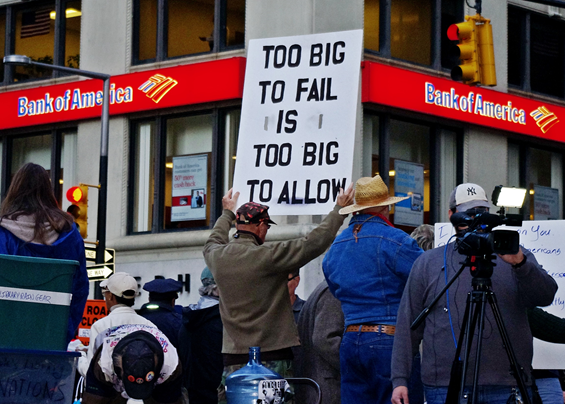(NaturalNews)
The United States – along with the rest of the world – is increasingly threatened by a potential ‘financial Armageddon’ which will be triggered by the burst of the $550 trillion global derivatives(http://www.sott.net) bubble.
You may have heard the term ‘derivatives’ before, but if you’re like most of us you probably don’t know exactly what it means.
I’ll quote some of the experts on derivatives trading and what makes it so dangerous. However, for the uninitiated, the simplest definition of the term is ‘legalized gambling.’
From Michael Snyder of TheEconomicCollapseBlog.com:
“Those that are engaged in derivatives trading are simply betting that something either will or will not happen in the future. Derivatives played a critical role in the financial crisis of 2008, and I am fully convinced that they will take on a starring role in this new financial crisis.”
Here’s a slightly more detailed definition from Investopedia.com:
“A derivative is a security with a price that is dependent upon or derived from one or more underlying assets. The derivative itself is a contract between two or more parties based upon the asset or assets. Its value is determined by fluctuations in the underlying asset. The most common underlying assets include stocks, bonds,commodities, currencies, interest rates and market indexes.”
(http://www.investopedia.com/terms/d/derivative.asp)
The global casino
As with all forms of gambling, derivatives trading carries a certain amount of risk.
The scary part is that we are all exposed to the enormous derivative risks that the biggest U.S. banks have become entangled in, despite assurances to the contrary:
“Overall, the biggest U.S. banks collectively have more than 247 trillion dollars of exposure to derivatives contracts. That is an amount of money that is more than 13 times the size of the U.S. national debt, and it is a ticking time bomb that could set off financial Armageddon at any moment. Globally, the notional value of all outstanding derivatives contracts is a staggering 552.9 trillion dollars according to the Bank for International Settlements. The bankers assure us that these financial instruments are far less risky than they sound, and that they have spread the risk around enough so that there is no way they could bring the entire system down.”
But as Snyder points out, there is no way to completely eliminate the risk, no matter how much you spread it around. And when the global derivatives bubble finally bursts, it won’t be pretty.
Way back in 2002, Warren Buffet(http://www.zerohedge.com/news/2015-05-30/ten-tips-warren-buffet) foresaw the danger of the expanding derivatives marketplace. From a letter he wrote to a group of shareholders:
“The derivatives genie is now well out of the bottle, and these instruments will almost certainly multiply in variety and number until some event makes their toxicity clear. Central banks and governments have so far found no effective way to control, or even monitor, the risks posed by these contracts. In my view, derivatives are financial weapons of mass destruction, carrying dangers that, while now latent, are potentially lethal.”
What does it really mean?
So what happens when the derivatives Armageddon takes place? And what will it mean for the average American?
What it could mean is that you will not be able to withdraw your own money from the bank. As a bank depositor, you are considered an ‘unsecured creditor.’ If the derivatives market implodes, there is simply not enough money in the banks to cover the debt, and derivative claims have priority over all other claims.
As author and financial critic Ellen Brown warns, your money “is just a loan to the bank, and you must stand in line along with the other creditors in hopes of getting it back.”
You don’t need to grasp all the complexities of derivatives trading to understand that $247 trillion is the very epitome of ‘high-stakes’ gambling. And the money you have in the bank makes you player in the game, too – whether you like it or not.
Sources:
http://theeconomiccollapseblog.com
http://www.investopedia.com/terms/d/derivative.asp
http://www.fintools.com/docs/Warren%20Buffet%20on%20Derivatives.pdf


